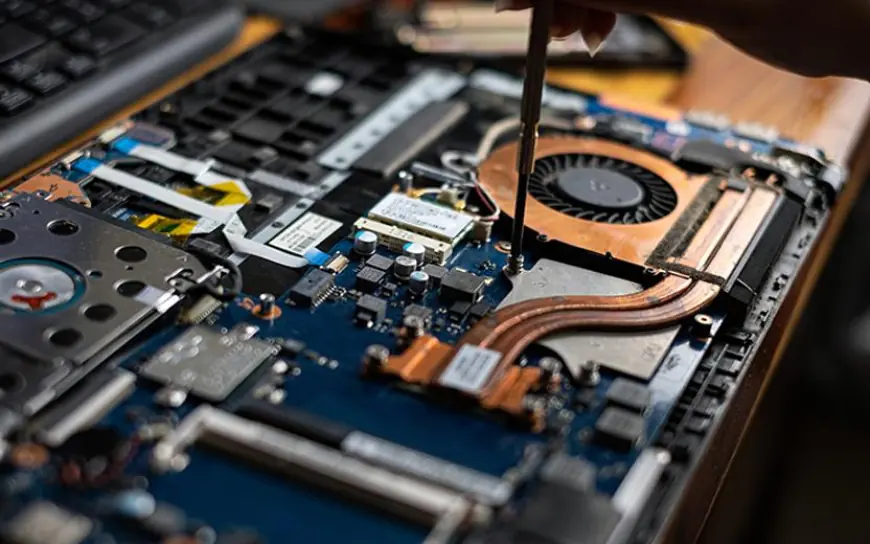What Mistakes to Avoid When Seeking Computer Repair Help
Once your device is repaired, don't forget about long-term care. Establish a routine of regular updates, antivirus scans, and software cleanups.

When a computer crashes, freezes, or behaves strangely, most people instinctively search for “computer repair” near them. But jumping into the first solution available without doing your homework can lead to more harm than good. In this blog, we'll walk you through the most common mistakes people make when seeking computer repair help and how to avoid them, especially if you're considering computer repair on Main Street or any other local tech provider.

Ignoring the Root Cause
One of the biggest mistakes you can make is addressing only the symptoms of your computer issues. A slow PC, pop-up ads, or frequent crashes might not be isolated problems. They could stem from deeper issues like hardware failure, malware infections, or even power supply inconsistencies. Make sure your repair provider investigates thoroughly, rather than just offering a quick fix.
Skipping the Backup Step
This cannot be stressed enough: always back up your data before sending your device for repair. Even trusted technicians may unintentionally wipe important files during diagnostics or part replacements. Use an external hard drive, cloud storage, or backup software to secure your data in advance.
Falling for “Too Good to Be True” Prices
In the world of tech repair, you often get what you pay for. Be cautious of offers that seem drastically cheaper than others. Extremely low prices might mean reused parts, rushed repairs, or inexperienced technicians. A reputable service will be transparent about pricing and include warranties or guarantees for their work.
Not Asking About Certifications
Would you let someone unlicensed fix your car? The same logic applies to computer repair. Always ask if the technician is certified. Certifications aren’t just pieces of paper—they’re proof that the technician knows what they're doing.
Choosing Convenience Over Competence
If you’re searching for computer repair on Main Street because it’s around the corner, make sure proximity doesn’t outweigh quality. Read online reviews, check the shop’s reputation, and ask friends or colleagues for recommendations. Local doesn't always mean better but a great local provider with strong feedback can be a goldmine.
Allowing Unauthorised Access to Sensitive Data
Your computer is home to personal files, passwords, photos, and more. Ensure that you log out of all sensitive accounts before handing over your system. For added safety, create a guest user account for diagnostics. You never want your privacy compromised, even unintentionally.
Ignoring the Warranty
Before you even consider third-party repair, check if your device is still under manufacturer or extended warranty. Tampering with internal components could void your warranty, costing you more in the long run. If your computer is still covered, always go through the official repair process.
Not Getting a Written Estimate
Verbal quotes are nice but what happens when the repair bill doubles out of nowhere? A reputable technician will provide a detailed written estimate before starting work. This transparency helps you compare options and avoid unpleasant surprises.
Rushing the Process
We get it being without your computer is frustrating. But pushing a technician to rush the repair can lead to poor workmanship or missed issues. Allow them enough time to do a thorough job. A quality fix is better than a quick one that fails a week later.
Forgetting Preventative Maintenance
Once your device is repaired, don't forget about long-term care. Establish a routine of regular updates, antivirus scans, and software cleanups. Preventative computer maintenance can extend the life of your device and help avoid future breakdowns. Ask your technician for a basic maintenance checklist.
Overlooking Alternative Solutions
Sometimes, repairs may not be the best option especially for older devices. If a repair cost nears the price of a new computer, ask whether upgrading makes more sense. Tech evolves quickly, and sometimes recycling your old system is smarter than sinking more money into it.
Not Keeping the Receipt or Repair Record
Always keep a copy of your repair record, especially if the technician replaced parts or updated internal components. This record can be useful for future troubleshooting or if warranty issues arise later on.
Final Thoughts
Choosing a trustworthy repair shop is as important as fixing the problem itself. Avoid shortcuts, ask the right questions, and be proactive about data security and maintenance. Whether you're getting help from a large chain or exploring computer repair on Main Street, remember that a few simple steps can make the experience smoother and safer.
When in doubt, consult a professional who not only understands technology but also values transparency and customer trust. After all, your computer holds more than just data it holds your daily life, your work, and your peace of mind.
What's Your Reaction?
 Like
0
Like
0
 Dislike
0
Dislike
0
 Love
0
Love
0
 Funny
0
Funny
0
 Angry
0
Angry
0
 Sad
0
Sad
0
 Wow
0
Wow
0



















































